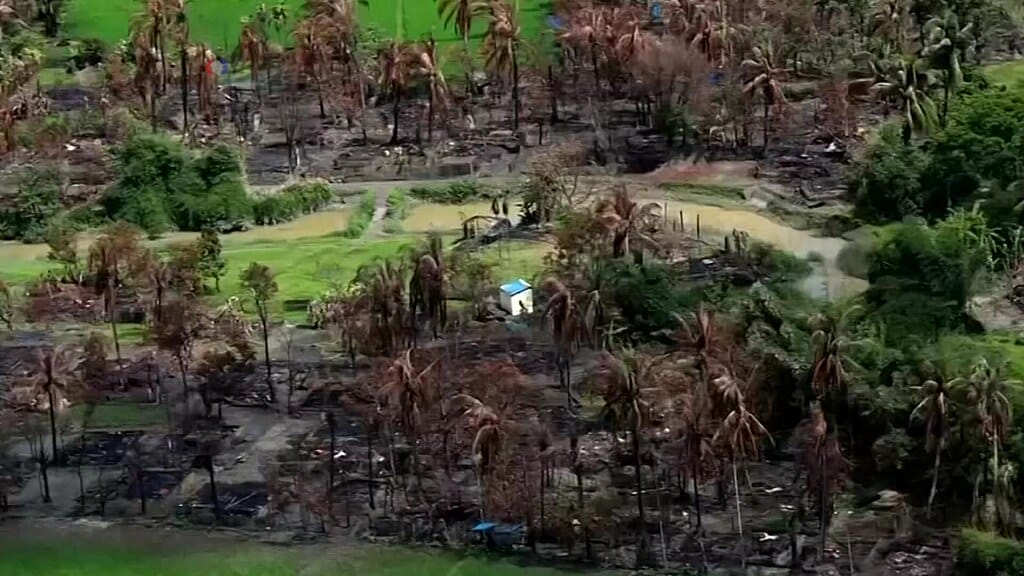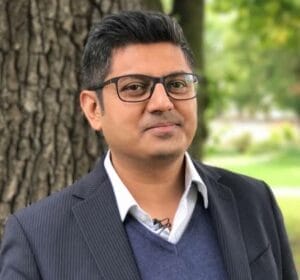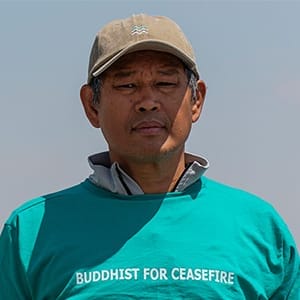On the 77th anniversary of its independence from Britain, Myanmar, under military rule, continues to face political tensions, instability, and armed conflicts.
Myanmar’s struggle for independence was shaped by the resistance against the Japanese occupation led by General Aung San during World War II and the British colonial rule after the war.
January 4, which became the symbol of liberation from colonial rule after the declaration of independence in 1948, is celebrated every year as Independence Day by the people of Myanmar.
Nay San Lwin, one of the founders of the Free Rohingya Coalition, and Maung Zarni, a Myanmar human rights activist and genocide expert, shared their perspectives with an AA reporter on what Independence Day means for Myanmar’s society, given the ongoing political instability and human rights violations.
According to experts, despite being built on ideals of “unity” and “equality” during its independence process, Myanmar has not been able to achieve these ideals due to ethnic conflicts and military interventions that have persisted since the country gained independence 77 years ago.
“The military coup seriously tarnished Aung San’s legacy and name”
Myanmar, which celebrates its 77th Independence Day, has spent a total of 52 years under military rule. Following the military’s takeover in 2021, political tensions and armed conflicts have resulted in thousands of deaths, and tens of thousands have been detained or displaced.
Nay San Lwin emphasized that although the military claims to protect Aung San’s legacy, the coup has actually shattered the hopes of the Myanmar people.
Lwin explained that Myanmar’s independence ideal has been disrupted by military coups and conflicts, stating, “The 2021 coup reversed Myanmar’s democratization process, halted reforms, dissolved the elected government, and suppressed civil liberties. This led to protests and violent repression, seriously weakening democracy and stability.”
Similarly, Maung Zarni, a Myanmar human rights activist and genocide expert, stated, “The 2021 coup seriously tarnished Aung San’s legacy and name.”
Pointing out that during the colonial era, all native communities, including the Buddhist majority and the Rohingya Muslims, were subjected to the “racist rule of the white man,” Zarni expressed that the sense of “inequality” has grown over the past 70 years, with different ethnic and religious groups not being granted equal opportunities.

Aerial view of a burned Rohingya village in Rakhine state, Myanmar – September 2017. Wikipedia Commons
Rohingya Muslims Facing Ethnic Cleansing and Human Rights Violations
Experts suggest that the crisis in Myanmar is not limited to conflicts between the military regime and armed groups.

Nay San Lwin is a prominent Rohingya political activist from Myanmar.
Ethnic cleansing and human rights violations against Rohingya Muslims contradict the ideals of “unity” and “equality” that were supposed to be part of Myanmar’s independence.
Lwin highlighted that Rohingya Muslims have been subjected to genocide, sexual violence, forced displacement, arbitrary arrests, and the denial of citizenship rights. “Myanmar’s independence process aimed to unite the people, but over time, communities like the Rohingya Muslims were ignored and lost their citizenship rights,” he said.
Zarni also pointed out that, contrary to the ideals of independence, the Rohingya Muslims have faced systematic genocide and discrimination, undermining national unity.
Myanmar’s Struggle for Independence
Experts highlighted that General Aung San, who led Myanmar’s independence struggle during World War II against the Japanese occupation and later the British colonial administration, played a key role in Myanmar’s independence movement.

FORSEA’s Maung Zarni with the inter-faith delegation to Gaza, 29 Aug 2024
Zarni described the leadership of Aung San, Myanmar’s first prime minister who was assassinated by General U Saw’s team in 1947, as “an unparalleled example of political leadership that was ahead of its time.”
Lwin, who said that Aung San led the independence negotiations by uniting different groups in the country and advocated equality, also stated that the Panglong Agreement, which united ethnic groups in the transition to independence, was an important step for ethnic cooperation, adding, “However, the promised autonomy, equality and unity have not yet been achieved.”
Lwin further explained that even after 77 years of independence, Myanmar’s pursuit of democracy and equality continues, and the country’s ethnic conflicts, military control, and political instability have hindered the goal of becoming a peaceful and inclusive nation.
Today, the painful question is what January 4 means to the people of Myanmar.
January 4th marks the day Myanmar regained its sovereignty and ended 124 years of British colonial rule (1824-1886), symbolizing the country’s independence. However, the quest for equality and unity among the country’s diverse ethnic and religious communities remains an ongoing challenge.
Lwin noted that Independence Day holds different meanings for Myanmar’s various communities, stating, “For many, January 4th is a symbol of freedom and national pride, but it also serves as a reminder that the promises of equality and autonomy for ethnic groups have not been fulfilled. For democracy advocates, it symbolizes the fight for true freedom and resistance against oppression.”
Zarni, who pointed out that Myanmar is amidst a civil war and that genocidal waves against Rohingya Muslims have occurred, stressed that the meaning of January 4th today is a painful question for the people of Myanmar. “Ethnic Burman politicians and generals who have usurped the sovereignty of the people since 1962 have failed to fulfill the promises of ethnic equality and democratic rights,” he said.
Zarni emphasized that Independence Day reminds the importance of avoiding war and the devastating effects of civil war, adding, “Therefore, the most important lesson from Myanmar’s history is to seek peaceful solutions, engage in dialogue, and strive to build an inclusive society.”
Conflicts in Myanmar
Myanmar’s military seized power on February 1, 2021, following allegations of fraud in the 2020 general elections and political tension in the country.
The military detained many officials, including the country’s leader and Foreign Minister Aung San Suu Kyi, and declared a one-year state of emergency.
In response, armed groups from the Myanmar National Democratic Alliance Army, Arakan Army, and Ta’ang National Liberation Army, united under the name “Three Brothers Alliance,” launched an armed attack on the Myanmar army on October 27, 2023, near the China border in northern Shan State.
Recent reports suggest that the “Three Brothers Alliance” has made some gains against the Myanmar army in regions along the China and India borders, with Shan State’s Kokang Self-Administered Zone completely taken over.
As of now, 902 people have died in the clashes, and according to the Assistance Association for Political Prisoners (AAPP), nearly 1,400 people have lost their lives, and approximately 10,000 have been detained.
A ceasefire was declared on January 12, 2025, between the Myanmar army and the “Three Brothers Alliance” under China’s mediation.
Ethnic Cleansing of Rohingya Muslims
In 2012, clashes erupted between Buddhists and Muslims in Myanmar’s Rakhine State, resulting in the killing of thousands of Muslims and the burning of hundreds of homes and businesses.
More than 1 million people fled to neighboring Bangladesh after fleeing the mass violence by Myanmar’s military and Buddhist nationalists, citing simultaneous attacks on border posts in Rakhine on August 25, 2017.
Bangladesh is, now, home to nearly 1 million Rohingya Muslims who fled Rakhine following a military crackdown in Myanmar in August 2017.
Myanmar military leader Min Aung Hlaing took over the interim post in July 2024 from Deputy President Myint Swe, who was on leave due to health problems.
Translated by Mehmet Ozturk, former Editor of World Languages at Anadolu News.
The original article in Turkish appear HERE.



